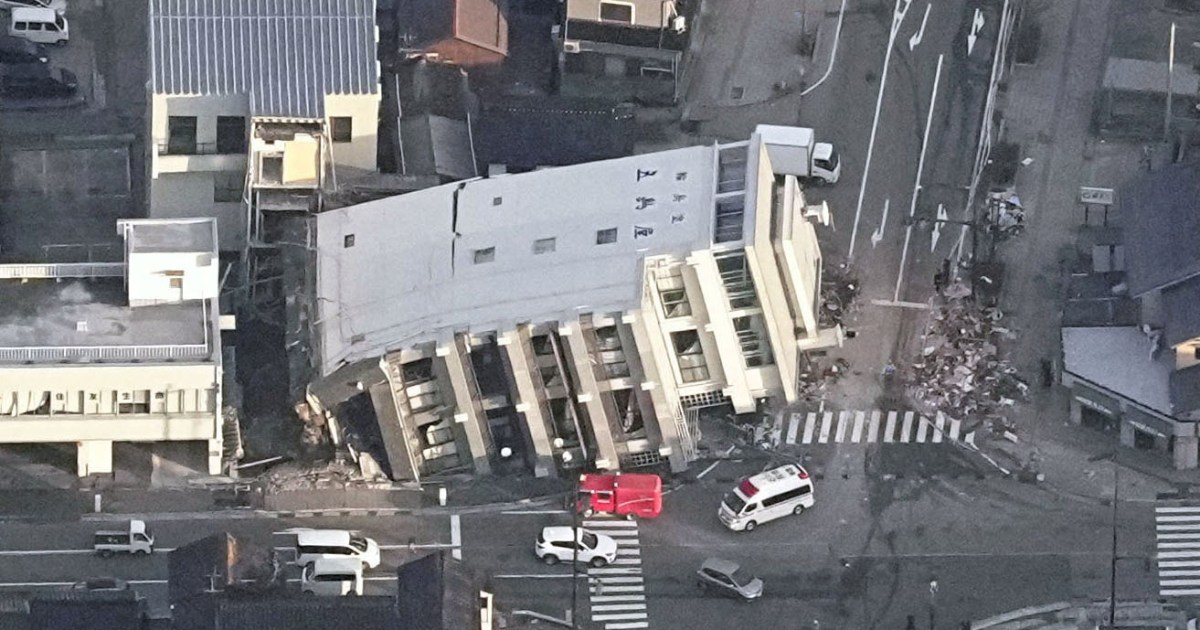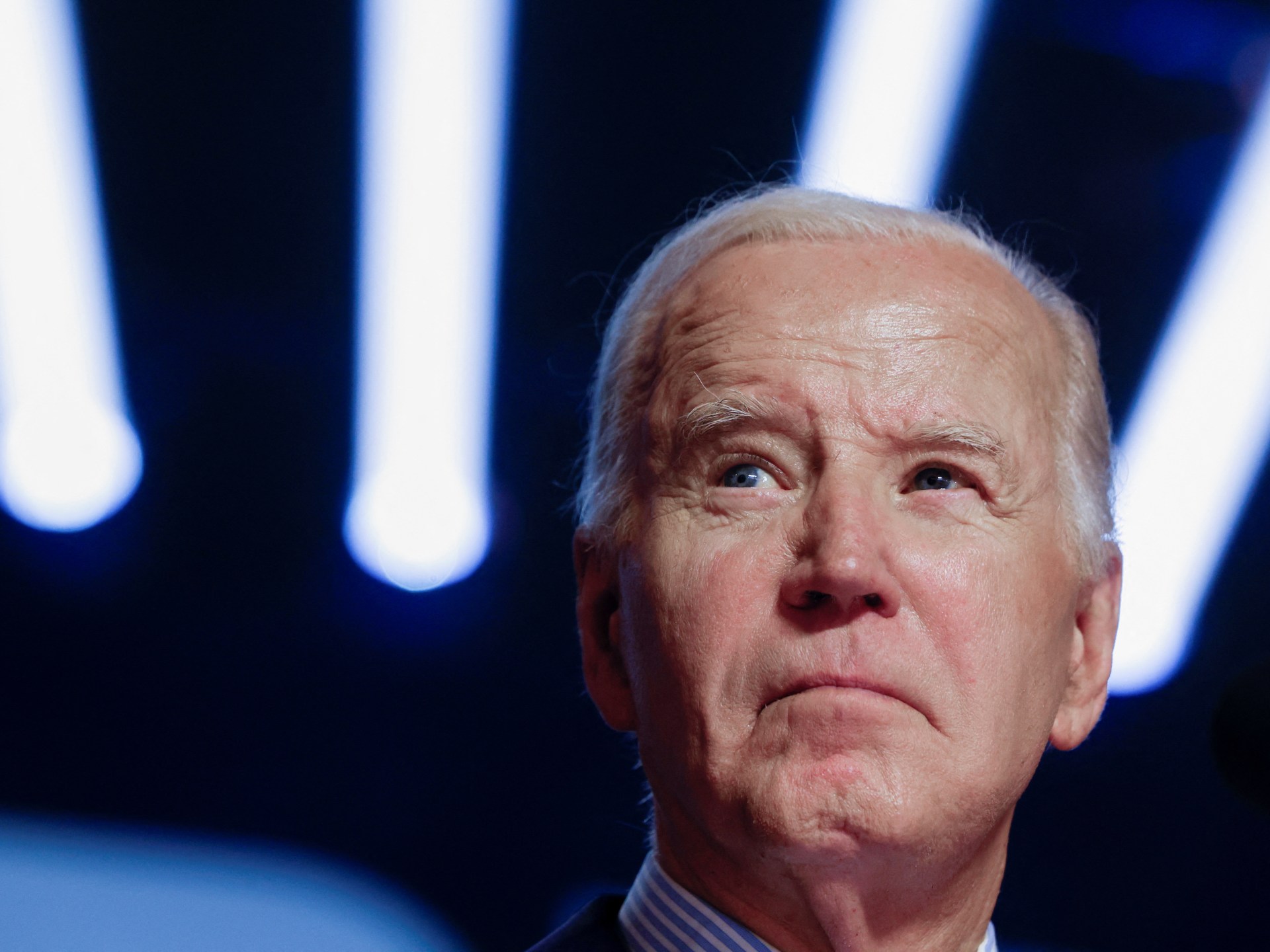
New Delhi, India — Indian Prime Minister Narendra Modi's The Bharatiya Janata Party (BJP) is well on its way to lose its national majority after major losses in key states, dramatic turnaround in a political landscape that it has dominated for the past decade.
The BJP is well on its way to effortlessly establishing itself as largest party in the Lok Sabha, the lower house of the Indian parliament. But as election officials announced the results of India’s six-week election on Tuesday, it became clear that the BJP would struggle to maintain its Performances from 2014 and 2019.
Unlike in those two elections, in which the BJP won clear majorities alone in a 543-seat House, its advances and victories fluctuated for most of the day around the 240 constituencies. The halfway point is 272 seats.
In contrast, the opposition INDIA Allianceled by the Congress Party, was projected to win by more than 200 seats, suggesting a much closer contest than post-election polls had predicted. Post-election polls, released on June 1 after the final stretch of India's electoral cycle, had suggested that the BJP would surpass its 2019 result of 303 seats.
Modi and his party will likely still be able to form India's next government – but they will rely on a handful of allies whose support they will need to cross the 272-seat mark. The BJP with its allies – their coalition is known as the National Democratic Alliance (NDA) – was expected to win around 290 seats by late Tuesday afternoon.
“India is likely to have an NDA government in which the BJP alone will not have a majority, and coalition politics will play a real role,” said Sandeep Shastri, national coordinator of the Lokniti Network, a research program of the New Delhi-based Centre for the Study of Developing Societies (CSDS).
On Tuesday evening, in his first comments after the election results were announced, Modi said the NDA had won.
People have reposed their trust in the NDA for the third consecutive time! This is a historic achievement in the history of India.
I bow to the Janata Janardan for this affection and assure them that we will continue the good work of the last decade to continue to meet the expectations of …
— Narendra Modi (@narendramodi) June 4, 2024
But analysts said the election result raised questions about the BJP's strategy. As India's protracted election campaign unfolded, Modi, India's charismatic and polarizing prime minister, had increasingly resorted to fearmongering about the opposition's alleged attempts to hand the country's resources over to Muslims at the expense of Hindus, the country's majority. Meanwhile, the opposition had tried to corner Modi on his government's economic track record: Although the country is the fastest-growing major economy in the world, voters told pollsters before the election that high inflation and unemployment were central concerns for them.
The BJP’s campaign slogan, “Abki baar, 400 paar (This time more than 400)”, set a target of 400 seats for their alliance and 370 seats for the BJP itself.
The slogan was “much of overconfidence,” says Modi biographer Nilanjan Mukhopadhyay, at a time when many people in India were facing the reality of rising prices, unemployment and income inequality that is worse today than during British colonial rule. The result was “the BJP's sleepwalking into disaster,” says political analyst and columnist Asim Ali.
“Today, Modi has lost face. He is no longer the 'unconquered man' and his invincible aura has disappeared,” Ali said.
Formation of the next government
In some ways, the election result is reminiscent of 2004, when another incumbent BJP government under then Prime Minister Atal Bihari Vajpayee was widely expected to win a landslide victory. Post-election polls.
Instead, the Congress Party narrowly defeated the BJP and formed the government with its allies.
But 2024 is no longer 2004. Despite the setbacks, the BJP is still by far the largest party in Parliament and could form the next government along with its allies, the NDA. The Congress Party, the main opposition party, is expected to win about 100 seats, less than half the votes the BJP is expected to receive once all the votes are counted.
However, two regional parties will now hold the key to the office of the Indian Prime Minister: the Janata Dal-United led by Nitish Kumar in the state of Bihar and the Telugu Desam Party led by Chandrababu Naidu in the southern state of Andhra Pradesh. The TDP leads with 16 seats and the JD(U) with 12. Both parties were previously allied with the Congress Party.
While the BJP has achieved considerable success in South India – especially Keralawhere it is expected to win its first Lok Sabha seat – its overall numbers have been dented by heavy losses in the central Hindi-speaking states, which it had won by a landslide in the last election.
In Uttar Pradesh, India’s largest state and a crucial factor in the formation of the national government, the Hindu nationalist party lost in the parliamentary district of Faizabad, where the controversial Ram Templebuilt on the ruins of the 16th century Babri MosqueModi inaugurated the temple in January.
The inauguration of the Ram Temple, overseen by Modi, was a central element of the BJP's campaign to mobilise Hindu voters. The party also lost the important seat of Amethiwhere federal minister Smriti Irani faces defeat. Irani had won a spectacular victory over Rahul Gandhi, scion of the Gandhi family, by 55,000 votes in 2019. This year, Gandhi contested in the neighbouring Rae Bareli constituency and won the seat by a margin more than double Modi's in Varanasi, also in Uttar Pradesh.
The BJP also suffered losses in Maharashtra, India's second most important state. After most votes were counted at 6 p.m. Indian time (12:30 GMT), the INDIA alliance was ahead in 29 of the state's 48 seats. Only Uttar Pradesh has more seats, with 80. In 2019, the BJP won 23 seats in Maharashtra alone, and its allies won another 18.
In addition to Maharashtra, three other states that were epicenters of the Indian agrarian crisis with their major farmers' protests also suffered losses for the BJP compared to 2019: Haryana, Rajasthan and Punjab. The BJP governs in the states of Haryana and Rajasthan.
Congress celebrations
As soon as the first trends emerged on Tuesday morning, Congress supporters flocked to the party headquarters in New DelhiSupporters wearing white T-shirts with a photograph of Rahul Gandhi on the back could be seen waving party flags and keeping their eyes fixed on the giant screens showing live results.
“Now Indians at least have a voice to raise against the cruel BJP that has ruled us for the last ten years. More seats mean we have more say and a strong opposition,” said Suresh Verma, a Congress supporter.
The changed composition of the next Indian parliament could also have an impact on the way laws are passed. Critics accuse the BJP government of rushing laws through parliament without discussion and debate.
That will not be easy, said Shastri. “It will clearly be a much tougher fight for the BJP in Parliament,” he said.
Beyond parliament, analysts say, a weakened mandate could also affect the functioning of other democratic institutions in India. Critics accuse the BJP of abusing them for party political purposes.
“Under the BJP, India's institutions collapsed under brutal majority rule. The power system was very centralized at the top and India needs these kinds of coalition governments for its democracy to survive,” Ali said.
What's next for the BJP?
Once the dust settles on these results, the BJP will be introspective and the dominant duo of Modi and Amit Shah, India's home minister who is widely seen as the prime minister's deputy, will face tougher questions. “There will be questions about how to imagine Modi as the leader of the alliance, where he will have to listen to non-BJP leaders a lot more,” said Shastri of the CSDS.
Ali, the political analyst, also noted that “the BJP has failed to understand the situation” and that a group of yes-men around Modi may have blindsided his party. “It's like telling the king only the stories he wanted to hear,” he said. “For the BJP, it's really important that there is a feedback mechanism and decentralization of power.”
Over the past decade, India has slipped on several democracy indices under Modi's BJP majority government amid allegations of a crackdown on dissent, political opposition and the media. Modi has not held any press conferences in the past decade as prime minister.
If coalition partners keep the BJP in check, “there will be a respite for Indian civil society and critics of the government,” says biographer Mukhopadhyay.
Too many Indian Muslimsthe outcome also means relief.
Akbar Khan, a 33-year-old garbage collector, watched the results from his shack in northeast New Delhi and said he was delighted. While all of Delhi's constituencies are currently led by the BJP, Khan said that “people have come out on the streets and are fighting this election against the [incumbent] Government”.
Khan, who also works with garbage-picking communities in states like Bihar and Jharkhand, said: “The economically underdeveloped castes and classes are deeply angry with Modi and his divisive policies have so far failed to bear fruit among them.”
As a Muslim, Khan said he was angered by Modi's Islamophobic comments during the re-election campaign, in which he equated the community with “invaders” and described them as people “who have more children.”
“Indians had to vote against this hatred from Modi and the BJP,” he said.






Recent Comments